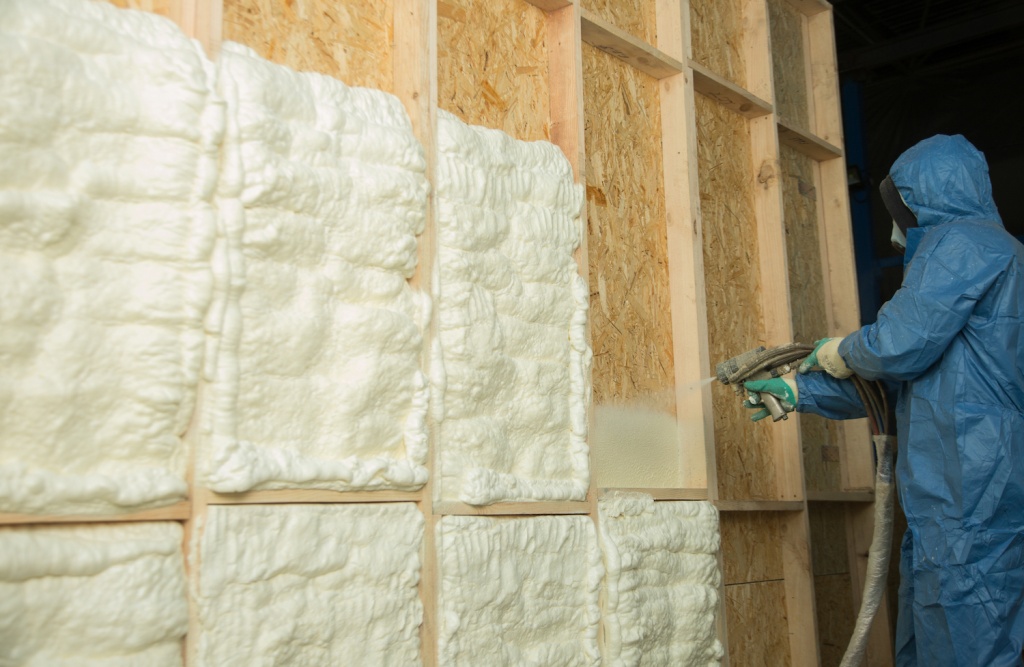Rise by Six: Your Daily Dose of Inspiration
Explore insights and stories that elevate your day.
Insulation: Your Home's Best-Kept Secret for Year-Round Comfort
Unlock year-round comfort in your home with insulation! Discover the secret to saving energy and reducing bills today!
Understanding the Benefits of Insulation: How It Keeps Your Home Comfortable Year-Round
Insulation plays a crucial role in maintaining a comfortable environment within your home throughout the year. By creating a barrier against the external temperature fluctuations, insulation helps to keep your home warm during the winter and cool during the summer. This not only enhances your comfort but also contributes to energy efficiency. With proper insulation, your heating and cooling systems do not have to work as hard, leading to reduced energy consumption and lower utility bills. In fact, well-insulated homes can save homeowners up to 20% on heating and cooling costs annually.
Furthermore, insulation offers additional advantages beyond just temperature control. It contributes to better soundproofing, minimizing noise transfer from the outside or between rooms, thereby enhancing your family's peace and privacy. Moreover, quality insulation materials can also help in preventing moisture buildup, reducing the risk of mold and structural damage. In summary, investing in proper insulation is essential for a cozy, energy-efficient, and healthy home environment.

Top 5 Insulation Materials for Optimal Home Energy Efficiency
When it comes to enhancing your home's energy efficiency, selecting the right insulation material is crucial. Insulation materials not only help maintain a comfortable temperature indoors but also reduce energy consumption and lower utility bills. Here are the top 5 insulation materials that can significantly impact your home's energy efficiency:
- Fiberglass: This widely used insulation material is cost-effective and easy to install. Fiberglass insulation boasts excellent thermal performance and is available in various forms, such as rolls and batts.
- Spray Foam: Offering superior air sealing properties, spray foam insulation expands on application and fills gaps and cracks effectively. This results in less air leakage and enhanced energy savings.
- Cellulose: Made from recycled paper products, cellulose is an eco-friendly insulation option. It is particularly effective in reducing thermal bridging and improving energy efficiency.
- Mineral Wool: Also known as rock wool, this material is fire-resistant and provides excellent soundproofing in addition to thermal insulation.
- Foam Board: Ideal for basement walls and exterior sheathing, foam board insulation offers high insulating values and is moisture-resistant, making it a great choice for various applications.
Is Your Home Properly Insulated? Signs You Need an Upgrade
Proper insulation is critical for maintaining the comfort of your home and enhancing energy efficiency. If you’ve noticed high energy bills, inconsistent room temperatures, or even drafts near windows and doors, it might be time to evaluate your insulation. Signs you need an upgrade often go beyond just financial indicators; they can also include your home's overall comfort. For instance, if certain areas of your home feel too hot in the summer or too cold in the winter, inadequate insulation may be the culprit.
Another important indicator is the age of your home's insulation. Insulation materials can deteriorate over time, losing their effectiveness. If your home was built several decades ago, it might not meet current energy efficiency standards. Inspecting your attic for signs of moisture or mold can also reveal whether your insulation is performing as it should. Remember, upgrading your insulation can lead to considerable long-term savings and a more comfortable living environment.